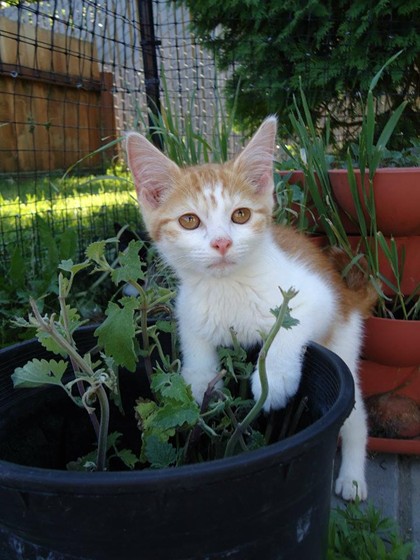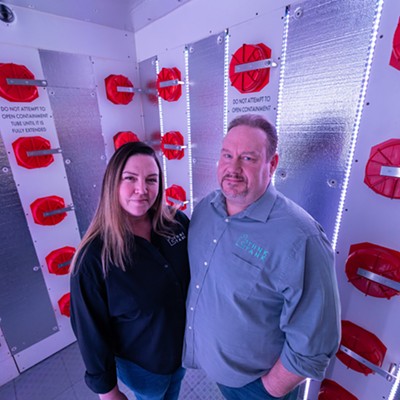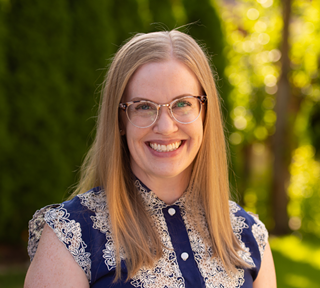Friday, October 17, 2014
CAT FRIDAY: Allergic to cats? Spokane clinic testing new treatment approach
A cat lover who's allergic to cats. The mere thought makes my mind reel, though I deeply sympathize with sufferers of such an unfortunate reaction. To never be able to enjoy the plush softness of my cat's fur against my cheek... I just can't...
It's estimated that about a quarter of the population experiences allergic reactions to cats, from moderate to severe and, in some cases, even life-threatening.
Modern medicine offers some temporary relief, with over-the-counter or prescription drugs, as well as longer-term allergen immunotherapy treatments. But a new treatment being tested for its effectiveness in an ongoing clinical study could offer new hope for cat lovers whose immune systems conflict with their emotional attachment to the species.
Spokane's Marycliff Allergy Specialists is recruiting volunteers to participate in national study called CATALYST, which seeks to determine if a new immunotherapy treatment can reduce or eliminate moderate to severe cat allergy symptoms for a sustained long term. This new treatment has already been proven safe and effective in smaller groups of trial participants. I chatted with Dr. Richard Gower, who's overseeing the study at Marycliff Allergy, to find out more.
Who is eligible?
The ideal candidate for the study is between ages 12 and 65, lives with an indoor cat and has been experiencing allergic reactions to cats for at least two years. The biggest challenge isn't finding cat owners who choose to live with their beloved pets while suffering through their allergy symptoms, Dr. Gower says, but finding people who aren't also experiencing symptoms due to other known allergies, like tree pollen, grass, dogs and other allergens.
He says if a person has a known allergy to some other environmental factor, they might still be eligible to participate during the winter season. (There is no cost to the patient to participate and insurance is not required.)
How does it work?
This new treatment works by desensitizing the person's immune system to cat allergens through monthly injections for about a year. The injections contain a synthetic formulation of cat allergens that are designed to train the body's immune system not to react to actual cat-created allergens.
"It stimulates the immune system to produce antibodies to become resistant to the symptom-causing effects," Gower explains.
Because of the drug's synthetic composition, the new treatment regimen has already been shown to do a better job than the existing cat allergy immunotherapy, and over a shorter time period.
How is it different than existing forms?
The current form of immunotherapy that exists to treat cat allergies requires a patient to commit to between 3-5 years of regularly administered shots, and has a high potential for side effects. Gower says that treatment series is not always successful for those reasons.
When could it become widely available?
Even if this treatment is shown to be effective, Gower says the approval process with the FDA could take three or more years.
"Cat allergies are not a small problem," he adds. "Most people have exposure to cats. Not being allergic is the best, but you can't change that. Avoidance is the most effective if you're allergic to anything, but that is difficult. The second part is medications, but those don't make you less allergic — they're like Band-Aids — covering up symptoms and making you feel better. The third part, desensitization of one form or the other, like this study, makes you less allergic. It's more of an approach to a cure than treatment with medications."
Those interested in finding more about the clinical trial should contact Marycliff Allergy Specialists at 838-3655 or visit the clinic's website at marycliffallergy.com.
Tags: Cat Friday , Marycliff Allergy Specialists , cat allergies , clinical trial , For Fun! , News , Image




















